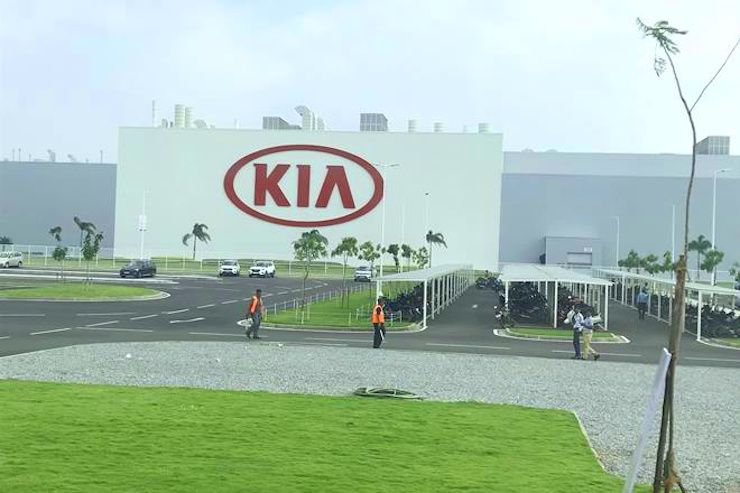Andhra IT Minister To Karnataka IT Minister: First Bangalore Potholes First


The public spat between Andhra Pradesh IT Minister Nara Lokesh and Karnataka’s IT-BT Minister Priyank Kharge has escalated into a kind of case study in inter-state competition for tech investments.

What began as persuasion of businesses has transformed into a battle over infrastructure, pride, and perception. Lokesh’s recent barb about potholes in Bangalore sharpened that rivalry even further.
Lokesh’s October 2 response was pointed. He said that Andhra is young and seeking every opportunity to grow and create jobs. He added that as states compete for investment, the country will benefit.
Then he suggested that Karnataka should fix arrogance, just like potholes on roads, before its own journey gets tripped up. The remark struck at both literal road decay and implied administrative hubris.

In this debate, Karnataka has clear advantages. Bangalore has long built an image as India’s tech capital. It hosts top universities, attracts top talent, has networks of startups and incumbents, and benefits from favourable weather compared to many inland cities. These qualities give it a pedigree few states can match.
Yet Bangalore’s infrastructure is coming under serious strain. Roads in many areas are deteriorating. Water supply, traffic, drainage and maintenance are recurring complaints. The Outer Ring Road, arterial connectors, local streets all show signs of wear and neglect.

There is little evidence that these issues will be fixed overnight. When businesses run daily into potholes, waterlogging, power cuts or planning delays, the appeal of a supposedly better alternative becomes real.
Lokesh’s jab about potholes was calculated. It touched a nerve: tech companies already operating in Bangalore often complain about infrastructure drag. By highlighting a failing that directly affects day-to-day operations, Andhra’s pitch acquires urgency.
One of the more striking claims from Lokesh is that Andhra has offered over 8,000 acres of “ready to use” land just outside Bengaluru for aerospace firms. This is not exactly “just outside Bangalore” - it is a political offer aimed at firms that were eyeing land near Bengaluru but were impacted by Karnataka pausing acquisition of 1,777 acres in Devanahalli after farmer protests. Andhra’s offer signals readiness to step in where Karnataka hesitates.

Critics say the “just outside Bangalore” phrasing exaggerates proximity, but in the narrative war, perception is key. The land offer gives Andhra a tangible talking point beyond slogans - though whether it translates into viable relocation depends on logistics, connectivity, and execution.
Lokesh has used every infrastructure complaint in Karnataka as a talking point. When a logistics startup flagged issues on the Outer Ring Road, Lokesh responded with an invitation. When BlackBuck’s founder expressed dissatisfaction with Bangalore's roads, Lokesh reached out directly. When Karnataka shelved its aerospace park plans after protests, Lokesh proposed shifting that project to Andhra, invoking the land offer above.
In contrast, Kharge emphasizes Bangalore’s strengths: ecosystem, scale, talent, history. He cites forecasts: Bangalore’s GDP growth at 8.5% until 2035, property appreciation of 5% in 2025, and its ascendancy in indices of urban growth and innovation. He also reminds critics that Bangalore absorbs migration and retains its status for a reason.
But Kharge’s tone sometimes dips into defensiveness. His use of biological metaphors (calling Andhra’s efforts “parasitic”) has been taken as condescending. That risks undermining what should be a confident narrative of strength. In political messaging, tone matters as much as data.
Andhra Pradesh has extra urgency. Hyderabad, its former economic hub, no longer lies within its state boundaries. Andhra must now build its own proposition in tech, defense, aerospace, and policy. It needs to show that it can attract capital and high-value firms, not just rely on symbolic offers.
By challenging Bangalore’s infrastructure failures, Andhra is trying to shift the decision frame. The question for companies is no longer just “which ecosystem is stronger,” but “which location makes operations smoother, more reliable, and less fraught with friction.” If Bangalore’s pedigree is undermined by daily drag, the upstart’s offer becomes more than rhetoric.

For tech firms weighing a move or expansion, several factors matter: road and transport quality, power and water stability, land cost, talent availability, ease of permits, local ecosystem, proximity to clients, and reputation. Bangalore still leads in many of those metrics, especially talent and ecosystem depth. But if rounds of infrastructure neglect persist, cost of friction grows.
Andhra’s strategy is to convert every Bangalore failure into a sales pitch: “Come here and avoid that.” That gives them leverage. Even if few firms relocate immediately, the pressure is real.